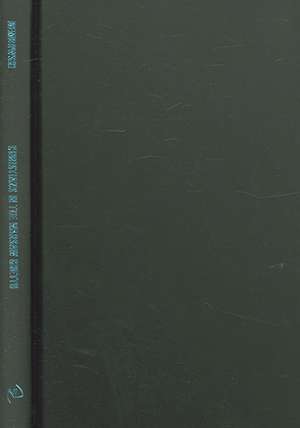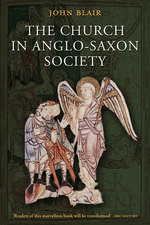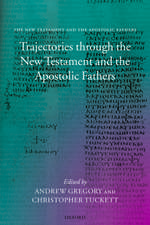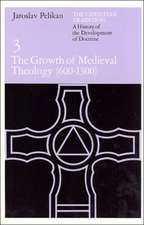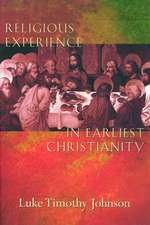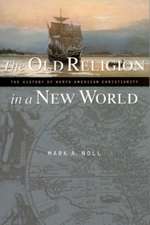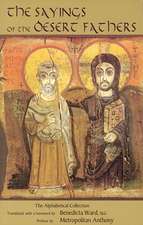Christians in the Warsaw Ghetto – An Epitaph for the Unremembered
Autor Peter F. Dembowskien Limba Engleză Hardback – 13 oct 2005
| Toate formatele și edițiile | Preț | Express |
|---|---|---|
| Paperback (1) | 196.98 lei 6-8 săpt. | |
| MR – University of Notre Dame Press – 13 oct 2005 | 196.98 lei 6-8 săpt. | |
| Hardback (1) | 585.54 lei 6-8 săpt. | |
| MR – University of Notre Dame Press – 13 oct 2005 | 585.54 lei 6-8 săpt. |
Preț: 585.54 lei
Preț vechi: 760.45 lei
-23% Nou
Puncte Express: 878
Preț estimativ în valută:
112.04€ • 117.22$ • 93.07£
112.04€ • 117.22$ • 93.07£
Carte tipărită la comandă
Livrare economică 02-16 aprilie
Preluare comenzi: 021 569.72.76
Specificații
ISBN-13: 9780268025724
ISBN-10: 026802572X
Pagini: 174
Dimensiuni: 161 x 235 x 20 mm
Greutate: 0.41 kg
Ediția:1
Editura: MR – University of Notre Dame Press
ISBN-10: 026802572X
Pagini: 174
Dimensiuni: 161 x 235 x 20 mm
Greutate: 0.41 kg
Ediția:1
Editura: MR – University of Notre Dame Press
Recenzii
“A powerful and very challenging work, which confronts the difficult issues surrounding Jewish converts to Christianity in both a scholarly and sympathetic manner. Dembowski's work functions as both micro-history and memorial. It is a challenging social history which adds scholastic value, and it will serve as an aid to all those who have interests in the fields of Jewish-Christian relations and the Shoah.” —European History Quarterly 39.1 (2009)
“In the writings about the Warsaw Ghetto, little is made of the some five thousand Christians of Jewish origin, mostly Catholics, who shared this plight. Jewish contemporary observers ignored this small group, or made disparaging comments about them. . . . So it has been left to Peter Dembowski, as an eye-witness, to describe the complexity and perils of their lives and deaths in the Warsaw Ghetto.” —The Catholic Historical Review, April 2007
“There were for a time three functioning Catholic parishes in the ghetto, and the author, a veteran of the Warsaw Uprising and long-time professor of literature at the University of Chicago, describes with care and insight the complicated relations between Jews and Christians caught up in the machinery of death. This is a dimension of the Holocaust that is little known. Thanks to Dembowski, these victims are no longer, or are not entirely, the 'unremembered.'” —First Things, March 2007
"In his 'microhistory' of the Holocaust, Romance Languages Professor Dembowski, himself an eyewitness to wartime Warsaw, explores the Jewish Christian communities that existed in the Warsaw ghetto. . . The book is a valuable contribution to Holocaust studies and a worthy memorial to the Jewish Christians of the Warsaw ghetto." —Religious Studies Review April 2006
"Honest and well researched work…. His personal debt to one family of converts, who were connected by marriage with his father, compelled him to write this study. He draws on personal recollections, archival material and the vast archive of Holocaust literature to shape the book. The author presents us with an honest image of the ghetto during the 1939–1942 turbulent years." —The Jerusalem Post, April 28, 2006
Notă biografică
PETER F. DEMBOWSKI is Distinguished Service Professor (Emeritus) in the Department of Romance Languages and Literatures at the University of Chicago. Born and raised in Warsaw, Poland, Dembowski was involved in the underground activities of the Polish Home Army and participated in the Polish uprising. He was twice a prisoner of the Germans—first at the infamous prison known as Pawiak, where comrades bribed corrupt Gestapo officials to win his freedom, and later at Stalag XB Sandbostel, where he remained until the prison was liberated by the British. Upon liberation, Dembowski joined the Polish Army in the West. For his war service, he was decorated twice with the Polish Cross of Valor and the Silver Service Cross with Swords.
Descriere
During the early 1940s, some five thousand Christians of Jewish origin lived in the Warsaw ghetto. In this remarkable book, which combines both memoir and historical analysis, Peter F. Dembowski describes their fate. He also brings to light the little known fact that within the Warsaw ghetto were fully functioning Christian churches, including at first three and later two Roman Catholic parishes.
"Professor Dembowski, a veteran of the Warsaw Uprising, draws upon personal recollection, archival material, and other works unavailable in English, in this moving account of a forgotten aspect of Holocaust history. As Professor Dembowski notes, this little book on the 'Jewish-Christian communities' of the Warsaw ghetto is a 'microhistory' —'a small part of the far larger tragedy of the Warsaw ghetto and of the entire Shoah.' But it is only through such small parts that we can begin to grasp the evil of the whole. Some of the Jewish Christians in the Warsaw ghetto were recent converts; others were descended from ancestors who had become Christians generations before. All were Jewish under Nazi law. Professor Dembowski's account of how the Jewish Christians perceived themselves, and how they were perceived by others, will be of interest, not only to students of the Shoah, but to all who are interested in law, religion, culture, and the construction of identity. Indeed, this is a book for anyone who appreciates the complexity of the human condition and the resourcefulness of the human spirit." —Barry Sullivan, Fulbright Professor, University of Warsaw and Partner, Jenner & Block, Chicago
"This book is a profound testimony to the complexity of life under the most extreme circumstances. It is a deeply moving piece of writing." —Michael A. Signer, Abrams Professor of Jewish Thought and Culture and Director of the Notre Dame Holocaust Project, University of Notre Dame
